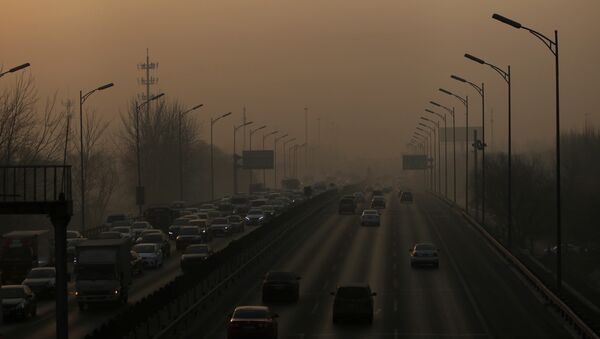Under the terms of the campaign, a reward known in China as "red envelope" or "red packet," worth approximately 3 to 10 cents, is distributed via instant messaging phone app WeChat if a car owner leaves their car parked for 24 hours, according to China Daily.
To get the reward, would-be motorists can simply upload a photo of their odometer at the end of one trip and another one at the beginning of a new trip at least 24 hours later. Users must also register in a mini-app within WeChat for the rewards program.
In addition to red envelopes, e-coupons will also be distributed among drivers who leave their cars at home, local media reported, adding that during heavy pollution days the reward will be doubled.
According to city authorities, the coupons the drivers get, known as "carbon coins," can be traded on the city's local emissions market. Companies can buy them from private drivers to compensate for their own carbon emissions.
These monetary measures are a part of a larger campaign aimed at reducing fumes emissions, as Beijing struggles with extreme levels of air pollution. The dire ecological situation in Beijing has forced authorities to implement draconian measures, such as outright banning odd or even-numbered license plates on certain days during the 2008 Olympics.
According to ECNS.com, authorities intend to cap energy consumption at 5 billion tonnes of coal equivalent by 2020, according to a government plan for 2016 to 2020. This would amount to a 15-percent reduction in energy use per unit of GDP by 2020.



